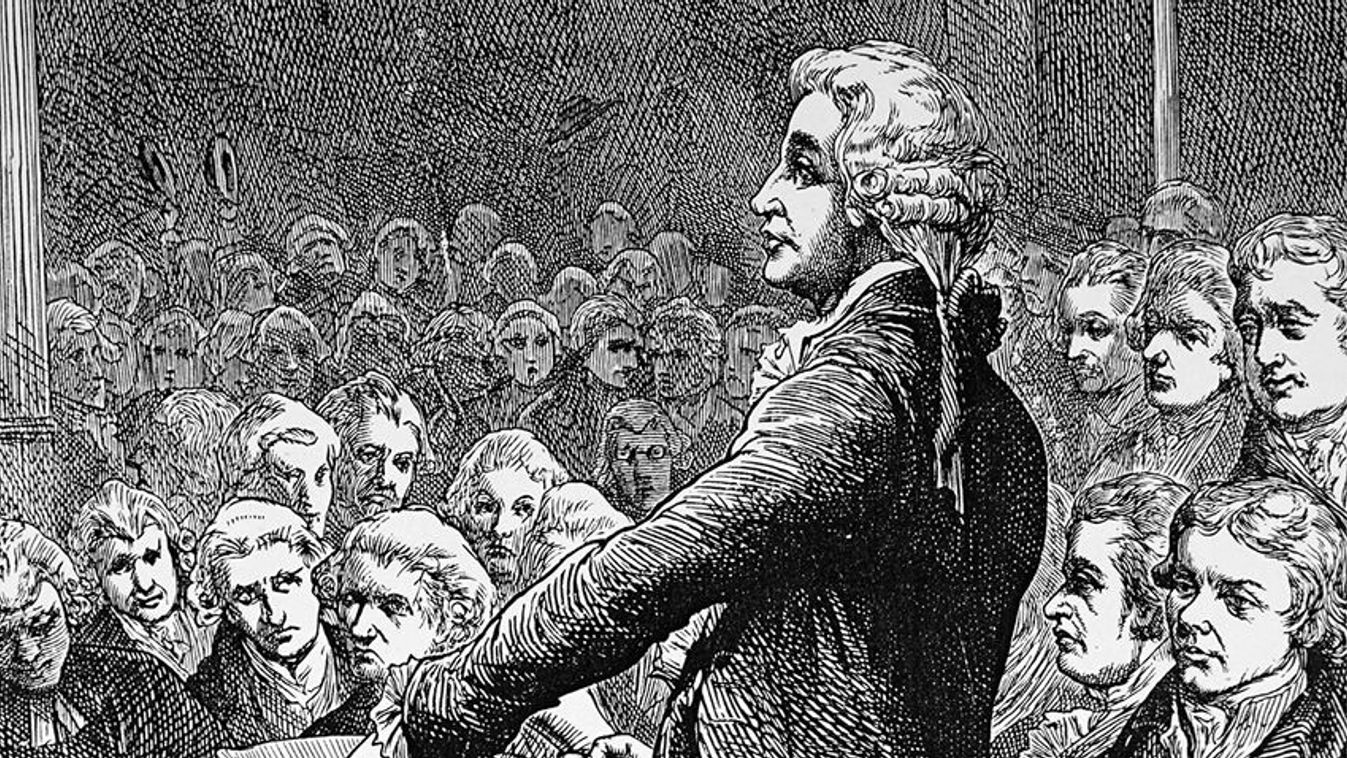Goran Selanec, S.J.D. is a justice of the Constitutional Court of Republic of Croatia appointed in 2017 for the mandate of eight years. Before the appointed he served as Deputy Ombuds for Gender Equality of Republic of Croatia. He also thought EU law at the Faculty of Law University of Zagreb. Selanec graduated from the Zagreb University and acquired his LL.M. and S.J.D. degrees from the University of Micigan School of Law.
From its inception, the Court of Justice of the European Union [CJEU] has been playing a leading role in developing the EU law as well as in defining its relation to national laws and national constitutions. How in your view did this strong role influence the overall direction of the European integration?
The CJEU has played a pivotal role in establishing the EU legal system. Let’s put it very simply: there would be no legal order without the CJEU and that legal order cannot function without the CJEU. Whether we like its jurisprudence and doctrines or not, the role the
Luxemburg Court has is of key importance for the functioning of the legal order of the EU.
Therefore, undermining the role of the CJEU means undermining the efficiency of the EU legal order. Thus, its authority should not be easily challenged.
However, we can also witness that since the 1970s but especially in the past decade constitutional courts or apex courts of Member States have been increasingly involved in reviewing the law of the European Union based on their national constitutions. What potential roles do or should national constitutional courts play in the development of the EU law in your view?
This is a difficult question because of its potential implications. As far as I am concerned as a Justice of a national constitutional court, I see clearly that there is at least one role the national constitutional courts ought to have, which is to encourage national courts to open a European judicial dialogue according to Article 267 of the Treaty on the Functioning of the European Union (TFEU) whenever it is necessary for the interpretation of EU law. If national courts fail to fulfill this responsibility, they are basically denying the principle fair trial or the principle of a lawful judge. So I think that is a baseline constitutional courts are required to fulfil. Constitutional Courts ought not engage in scrutinizing the “correctness” of enforcement of the EU law by regular national courts likely, even when appears that such engagement is required by apparent conflict between national and EU law. National legal orders of Member States and EU legal order might be tightly related in their operation. However, at the end of the day, they are autonomous. Moreover, notion that should always be kept in mind, although
autonomous they are (supposed to be) constructed around shared fundamental values which they serve.
That normative fact suggests that there ought not be a conflict of laws that could not be resolved successfully.
Judicial forums in some of the Member States do not recognize the absolute primacy of EU law while they protect their own constitutional identities, sovereignties, self-identities or fundamental rights as provided in their constitutions. What approach does the Croatian Constitutional Court take in this regard?
To what extent is it justifiable that constitutional courts guard over the core provisions and values of their constitutions?The Croatian Constitutional Court has never clearly assumed any position on the supremacy of the EU law. This jurisprudence has not developed yet. Similarly, there is a sufficient number of Member States where we still do not know what the constitutional court’s position on the supremacy of EU law and its relation to national law is. The challenging question to me is whether a strategy of the national constitutional court to challenge EU law in light of the constitution is an effective strategy. It seems to me that this might be a highly risky strategy. Conventionally, a constitutional court in principle has competence to say that even an EU legislation is not in line with the constitution. This implies that the regular courts should not apply it. However, such a decision would put the regular national courts in an unpleasant position since they, as participants of the EU legal order, have also a duty to turn to the CJEU in accordance to Article 267 of TFEU. It can happen that they might find themselves in a situation in which they have to choose between two opposite answers. If the national courts choose Luxemburg over the national constitutional courts, what can the constitutional court do? It is a very unpleasant situation for a constitutional court to be in. It could end up undermining its own authority if the national courts side with Luxemburg. In my view, it is too risky strategy. In that respect Croatian Constitution even introduced a safeguard designed to avoid such situation. Art 141.a of the Croatian Constitution stipulates that that EU legal order and national legal order serve the same fundamental values, while Art 141.c explicitly provides that EU law should be applied in accordance with the “acquis”, meaning also in accordance with the fundamental principles such as primacy, efficiency and direct effect. This was clearly a conflict avoiding strategy. I am not aware of similar constitutional approach in other Member States.
Accordingly I hold that it would be a more prudent strategy for a constitutional court to do what all courts including the CJEU in the EU legal order ought to do. That is resolving the conflict through judicial dialogue. Constitutional courts are also entitled to open a judicial dialogue and engage in this dialogue. This is how I see the essence of the “principle of loyalty”. In my view,
the principle of loyalty does not only bind Member States. It binds the institutions including the CJEU.
This principle requires the institutions to resolve conflicts through judicial dialogue. Strong or black and white final positions could have profound consequences for the functioning of the EU legal order which will then spill over the functioning of the national legal and political system.
How are the various judicial forums and institutions positioned in such a dialogue?
There is no clear pyramid and there is no arbiter at the top. The dialogue and the loyalty are not about who has the last word. There is no last word. There is only a process: a channel of communication and an obligation to talk to each other until a common solution is found. As noted earlier, the solution ought to be there since although autonomous national and EU legal orders are grounded in the same set of fundamental values that go beyond the European integration itself. They are staples of contemporary constitutional democracy build to avoid risk of repetaing the tragic experience of the II World War. Hence, we have to be aware that the stakes are incredibly high if there are Member States leaving the European integration. So these questions have profound implications both for the individual Member States as well as for the European integration as a whole. In my view,
rational compromise that is based on legal arguments serving shared fundamental values,
which is acceptable to all sides will determine the future of the European integration in the decades to come. The assumption behind the founding and the continuous enlargement of the European integration is that there is a lot that connect us in such a strong way that there should not be a situation in which we cannot find such compromise through legal arguments.
Based on the logic you just pointed out, if a national court refers a case to the CJEU and that particular case has constitutional implications, I am wondering whether in your view the national constitutional court should be involved in deliberation.
In such a situation the case would be of interest for both the CJEU and the national constitutional court. A responsible CJEU would look at whether the national regular court requests a procedure before the national constitutional court. If so, there are two parallel procedures and the CJEU can take the decision of the national constitutional court into account when rendering its own judgement. Conversely, a prudent national constitutional court can also wait for the decision of the CJEU. In the case that the national constitutional court does not like the judgement of the CJEU, they can open a separate dialogue according to Article 267 of the TFEU. Within this dialogue the national constitutional court can explain its perspective to the CJEU and ask them to take this into account.
But this communication does not only have to be within the framework of Article 267 of the TFEU. In my view it would be prudent if the CJEU would simply establish a separate unit within its institutional structure. This unit could be entrusted to communicate with national constitutional courts and find out what their positions, doctrines or established case-law are on certain issues. In the same vein,
the national constitutional courts can also establish research types units
that are entrusted to secure this kind of communication. If you want to have an honest judicial dialogue, there is a way to do this and there are already mechanisms in place which can serve as a model.
The Hungarian Constitutional Court recently handed down a major decision that engaged in a dialogue on the joint exercise of competences. How do you see this development?
The reasoning of the X/477/2021 decision leaves an impression of an attempt to preserve status quo. It opens more questions than it answers consequently postponing important issues raised in that case for some future occasion, possibly even some future composition. Such strategy is not familiar to Constitutional Courts. It is another question whether one's assessment of its prudence was sensible History will be the judge that. Leaving important questions open has its consequences, the first of them being the appearance of possible inconsistency. Inconsistency fundamentally undermines the persuasiveness and consequently an authority of any court ruling. It is very rarely that one can have a cake and eat it too.
For example, the legal positon that a Member State of the EU has the right to make its own laws where there was “incomplete exercise of competences between the EU and member states” is not problematic per se. However, it does become problematic if it entails that the Member State itself will be the judge of „incompleteness“ and is willing to make that call outside the available cooperation mechanisms based on mutual respect and cooperation such as Art 267 TFEU. All of us carrying judicial responsibilities are well aware of the functional principle of EU legal order that constrains unchecked used of competences reserved for Member States, especially if such use produces concrete implications for effective implementation of rights that were granted to individuals by the EU law. This is logical derivation of the fundamental principles of EU legal order such as primacy or effectiveness of EU law. If Member States were allowed to use their competences in a manner that could undermine consistent application of EU legal provision - that were supposed to be identically interpreted and enforced across the whole territory of the Union - we would quickly witness unravelling of the effectiveness of EU law. Consequently, the EU legal order would face the risk of what political theorists call „the balkanization” of the legal system and finally disintegration.
In fact, national courts, that is, judges are those who are best aware of that risk. Being a part of the supranational legal order we are frequently in a position to decide cases that require from us to recognize decisions of courts from other Member States with their own specific legal rules, cultures and outlooks as if they are “ours”. For example, if a dispute between parents results in a child being taken away to another Member State by one parent (frequently a national of that State) first thing a judge deciding such case in that Member State must do (she or he being a part of the EU legal order) is to check what legal steps did the courts in other “home” Member States already take and give full recognition to their decisions as if they were made by themselves. This is only one specific example of judicial interdependence. There are literally hundreds of other examples in other areas of law.
This judicial interdependence is the consequence of a simple fact that the Union we share is constructed upon the notion of free movement of all individuals enjoying its protection. In fact, we all participate in “sharing” it because it allows us to move freely, to have more freedom in our choices that we would otherwise have. Free movement assumes mutual recognition and more fundamentally it requires mutual trust. If actors in a legal system of one Member States start bringing into question prerequisites of mutual trust between national courts, including the effectiveness of the Art 267 TFEU mechanism, this will inevitably affect willingness of national courts in other Member States to keep extending their trust to those who are willing to bring the fundamentals into doubt. The EU legal order is built upon leap of faith and faith is justified by certain shared values and principle; without those values and principles it will be lost.
How do you see reform ideas like the “reverse” preliminary ruling procedure that would institutionalize the obligation of the CJEU to initiate a preliminary ruling procedure in cases which involve the interpretation of national constitutions?
I am skeptical towards such ideas. It is difficult to see how they could function in practice without driving a wedge between the Constitutional Courts and the CJEU. The idea of preliminary ruling is to provide proper interpretation of the law that ought to be practically applied in the context of particular set of factual and legal circumstances of a particular case at hand. This would not be the purpose of the so called “reverse” preliminary ruling since the CJEU has no competences to apply national law. Consequently, the purpose of such procedure would be to affirm Constitutional Courts as final interpreters of their national law in relation to their regular national courts. The issue of relation between a national Constitutional Courts and regular courts may be a very important issue. However, as a constitutional court justice I would like to settle that issue within my autonomous legal order without involvement of the CJEU. In case where a Constitutional Court considers that it has been undermined by some regular national court within in the context of Art 267 TFEU mechanism I am convinced that it can employ the same mechanism to address this problem. I am also rather convinced that there is an appropriate understanding that there is a difference between lower instance regular court and Constitutional Court engaging Art 267 mechanism. Hence, the problem is not that the CJEU does not “listen” enough to Constitutional Courts. The problem may be something else: the manner in which some constitutional courts justices (mis)interprete the purpose and implications of Art 267 mechanism.
The recently launched Conference on the Future of Europe aspires to provide a forum for discussion about the potential reforms of the EU as well as about the future of the European continent. Hence, it also offers a unique opportunity to discuss questions concerning the reform of the competences or the composition of the CJEU as well as the interplays of national constitutional courts and the CJEU. What reform steps would you think worth considering in order to achieve a harmonious cooperation as well as an equilibrium that aims to better respect the constitutional structures and identities of the Member States?
Well, there would be several. But the one that is recently very much on my mind does not directly relate to judicial dialogue. What troubles me is the dilemma of the so-called “political Commission”. The idea of a European Commission that strictly tied to political wills that do not fit really well to the original concept according to which the Commission ought to be independent and non-biased guardian of the European legal order. The “political Commission” was developed as a reaction to the criticism the institutions of the EU suffer from democratic deficits. Before that the Commission was technocratic.
The positive side of being a technocratic institution is that they are more independent from politics
and more and maybe too narrowly focused on the interests of the EU legal order. In this way, the European Commission was perceived as being loyal to the interests of the European Union. When it has become
a “political Commission” it began to be much more concerned with political concerns of the Member States,
even more than with other political bodies of the European Union. Plus, the “political Commission” has begun to assume a role of a broker. That can be a legitimate role but it is not a role that fits well with the old and original idea of a Commission being a neutral and an unbiased guardian of the European Union.
What is the consequence of this transformation?
The European Commission used to have two traditional functions. On the one hand, initiating infringement procedures against Member States before the CJEU. This served as an instrument in the hands of the European Commission to be able to fulfill its role as a guardian of EU law. On the other hand, legislation initiatives. We cannot have secondary EU law without the legislative proposals of the European Commission. Both of those competences assumed that the European Commission would be independent from the Member States. When the idea and role of the European Commission is shifting and becoming more political in the name of fixing the democratic deficit, it would lose focus with regards to its two traditional functions.
The European Commission carries out its political balancing role at the expense of its traditional roles.
And this shift has also implications on the functioning of the CJEU…
Exactly. Let’s make the whole circle. We started our conversation with the question what role the CJEU played in developing the EU legal order. My answer was in simple terms: pivotal. However, in developing the EU legal order, the CJEU had a strong ally. It was the technocratic, very narrowly focused and diligent European Commission.
I am not sure the CJEU has the same support today from the institutions and whether the European Commission sees its relation to the CJEU in the same way.
I think the shift in the European Commission approach changes the dynamic in the triangle among the Member State, the CJEU and the European Commission.
We now have a European Commission that is more similar to national government than it was before. Let’s think about this. Every year the European Commission publishes a report on the rule of law in the European Union. Why has this report been respected?
There has been an assumption that the European Commission was objective since it was removed from a regular political pressure that you would have in a regular political process on a national level.
So although an executive body the European Commission was different than a regular executive branch of a national government and because it was different, it was trusted to issue these kind of reports. If such a report came out from a national government, a key executive body, would it be considered equally objective by other governments and citizens? I am not sure. How does it change the distribution of powers on the level of the European Union between its institutions and then its implications on national politics? These are the types of dilemmas that I ask myself today as the European Commission has become a “political Commission”.























